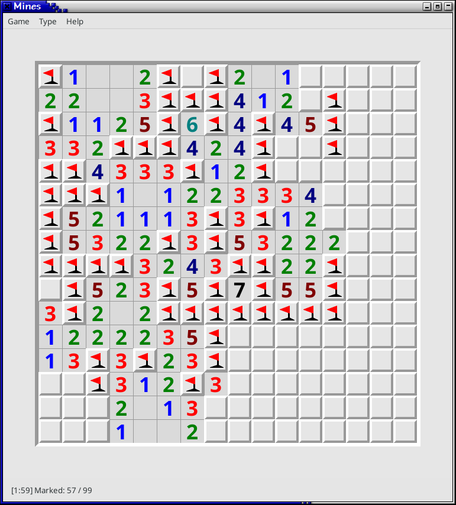In my Portable Puzzle Collection, it was recently (a few weeks ago) the 20th birthday of the game "Mines": a reimplementation of Minesweeper which ensures every grid can be solved by reasoning rather than guesswork. The first click in a completely blank grid is guaranteed to be safe, and to open an area of more than one clue, and after that, you can always identify a safe square to open next by thinking about the currently visible clues.
This makes it possible to generate grids with a much higher density of mines than standard randomised Minesweeper, such as the example shown here with 99 mines in only a 16×16 grid. I actually didn't predict that this would be possible when I wrote the grid generator originally: I only expected to be able to play on settings like the standard Windows ones, without those nasty last-minute frustrations. The ability to turn up the density by more than a factor of 2 was a very pleasant surprise – my algorithm was far more effective than I had anticipated!
The odd thing about Mines is: in the past 20 years, this one game has received far more bug reports about insoluble game instances than any other puzzle in my collection. Very likely more than all the other games *put together*.
But not one of those reports has turned out to be a real bug in the grid generation. In cases where they sent a save file or a game ID, I generally played through the game myself to make sure; if they only sent a screenshot, I've always at least pointed out something I could see in the picture. *Everybody* who sent this kind of report turned out to have missed something.
Happy 20th birthday, Mines!
